Kevin Muscat’s Yokohama F.Marinos are the defending champions but this is a new-look team in 2023. An A-Leagues winner as a player and a coach, he speaks to KEEPUP’s Sacha Pisani about evolution and staying ahead of the curve in Japan.
Football never stops. It is a constantly moving beast, forever evolving. There isn’t a chance to stand still and rest on your laurels while a new pack of hungry hunters are plotting to dethrone the champions.
Kevin Muscat’s Yokohama F.Marinos are the hunted this season after conquering the J1 League in 2022. It was a feat that saw the A-Leagues legend follow in the footsteps of friend and mentor Ange Postecoglou, becoming only the second Australian to be crowned the king of Japan.
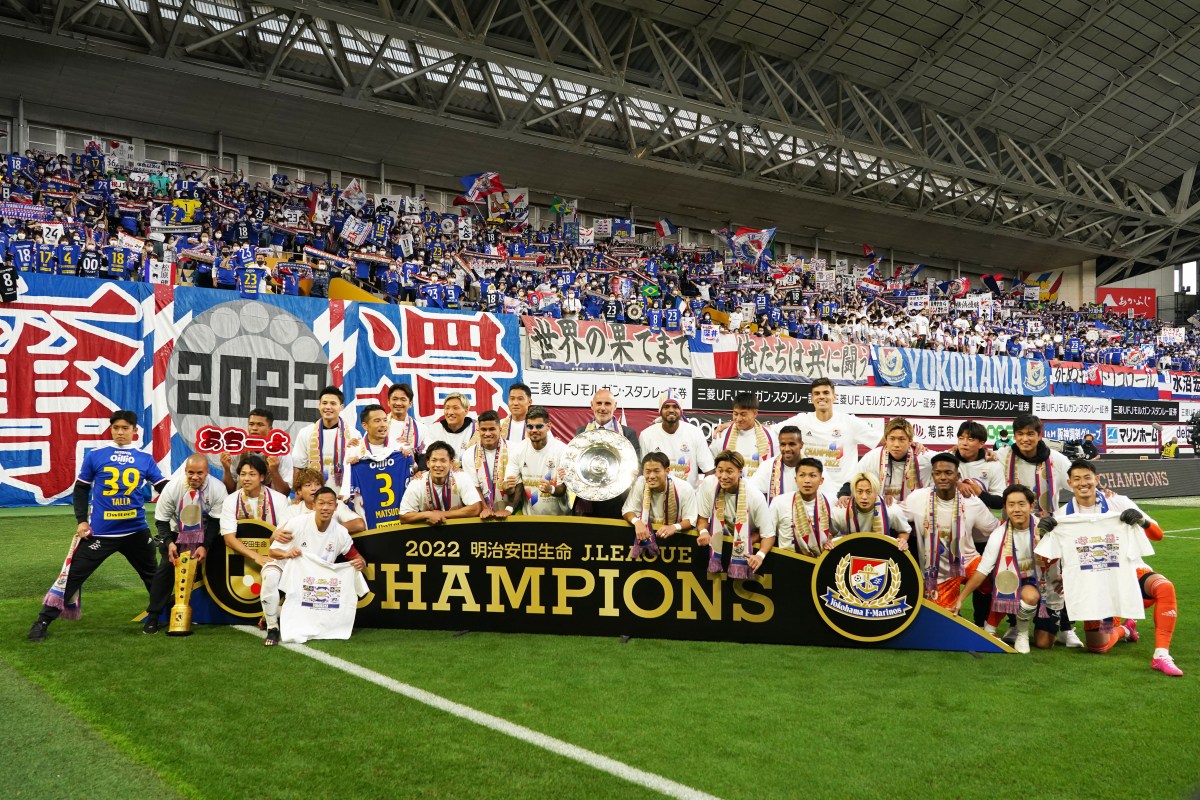
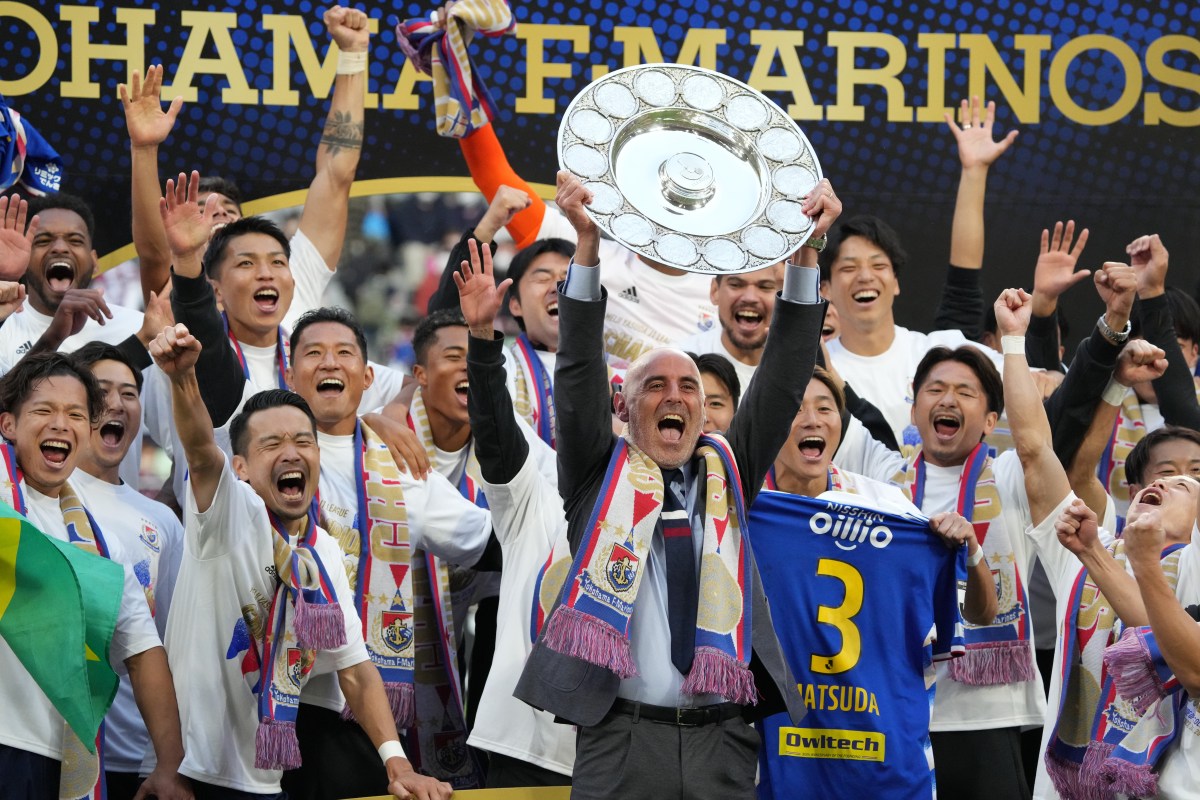
It was only 159 days ago. But already that is well and truly in the past.
“This is a totally new group,” Muscat told KEEPUP, with the Marinos three points off the pace through seven rounds of the new season.
“There’s been comings and goings. From that perspective, as a club, it can be foreseen as the defending champions or however you want to phrase it, but the reality for us as a group, it is totally different.
“We made a conscious effort that we’re not really defending anything because we’re playing for a new set of goals and trophies, and a new set of everything with a different group.
“Of course there’s some mainstays that were here and are still here, and maybe there’s a bit of a difference there. We’ve tried as hard as possible to keep that fire burning and keep everyone on their toes with the competition for places.”
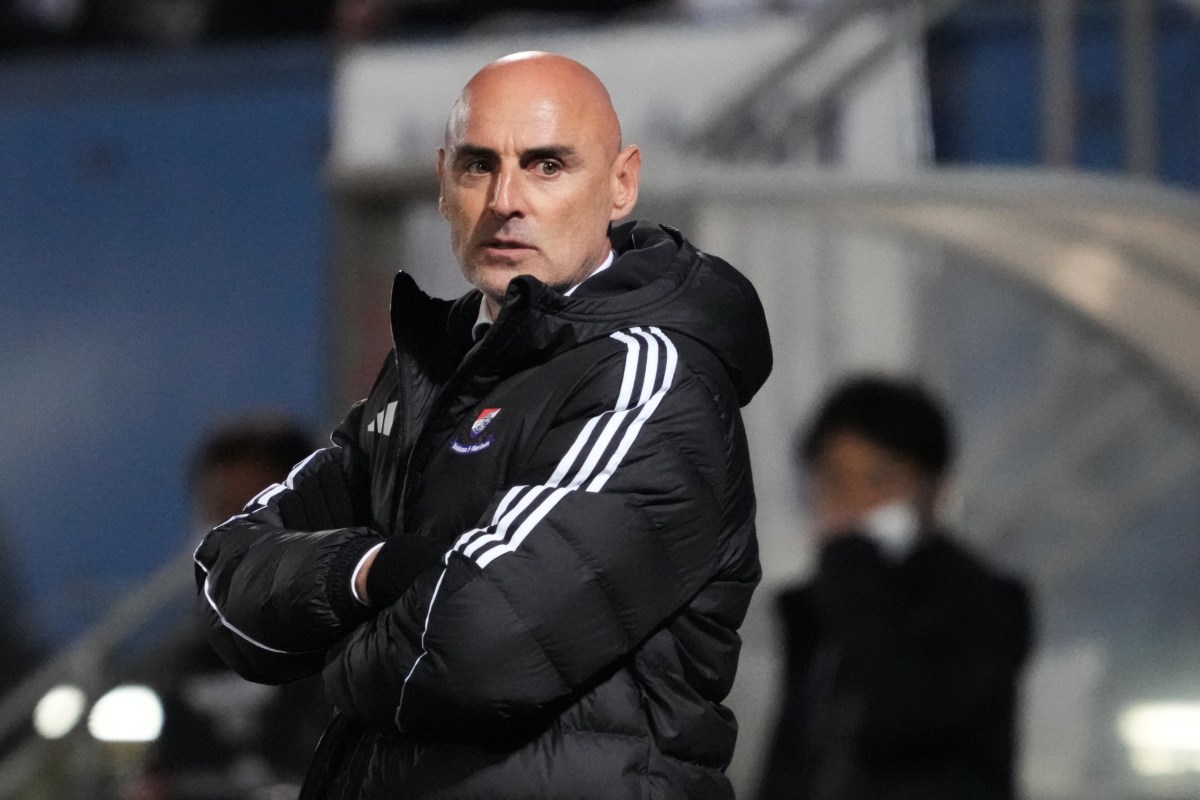
The fire he wants to keep burning was distinctive last year. High tempo and entertaining. Dominant, with goals and football to get you up off your seat. Muscat joined an exclusive club in Japan last season after guiding the Mariners to their first league trophy since Postecoglou’s trail-blazing triumph in 2019, but a lot has changed since.
The Marinos were decimated by key departures in the off-season – 2022 J1 League MVP Tomoki Iwata (to Celtic), star winger Teruhito Nakagawa (FC Tokyo), first-choice goalkeeper Yohei Takaoka (Vancouver Whitecaps) and Leo Ceara (Cerezo Osaka).
READ MORE ON KEEPUP
MARINOS: Inside Muscat’s breathtaking champions
MUSCAT: He’s the king of Japan but it’s a moment with his assistant that will stick with Muscat ‘forever’
POSTECOGLOU: Emulating Ange whilst breaking his mould
ANGE: Celtic icon’s ultimate praise
And the season prior, the Yokohama-based club lost 2021 Golden Boot winner Daizen Maeda (Celtic), title-winning centre-back Thiago Martins (New York City FC), Keita Endo (Union Berlin), Ado Onaiwu (Toulouse) and Theerathon Bunmathan (Buriram United).
But it is all part of the Marinos model as they look to unearth the next gem. This is not a club, even with City Football Group (CFG) investment, with the same financial muscle as the likes of Urawa Reds, Vissel Kobe, Kawasaki Frontale and Nagoya Grampus.
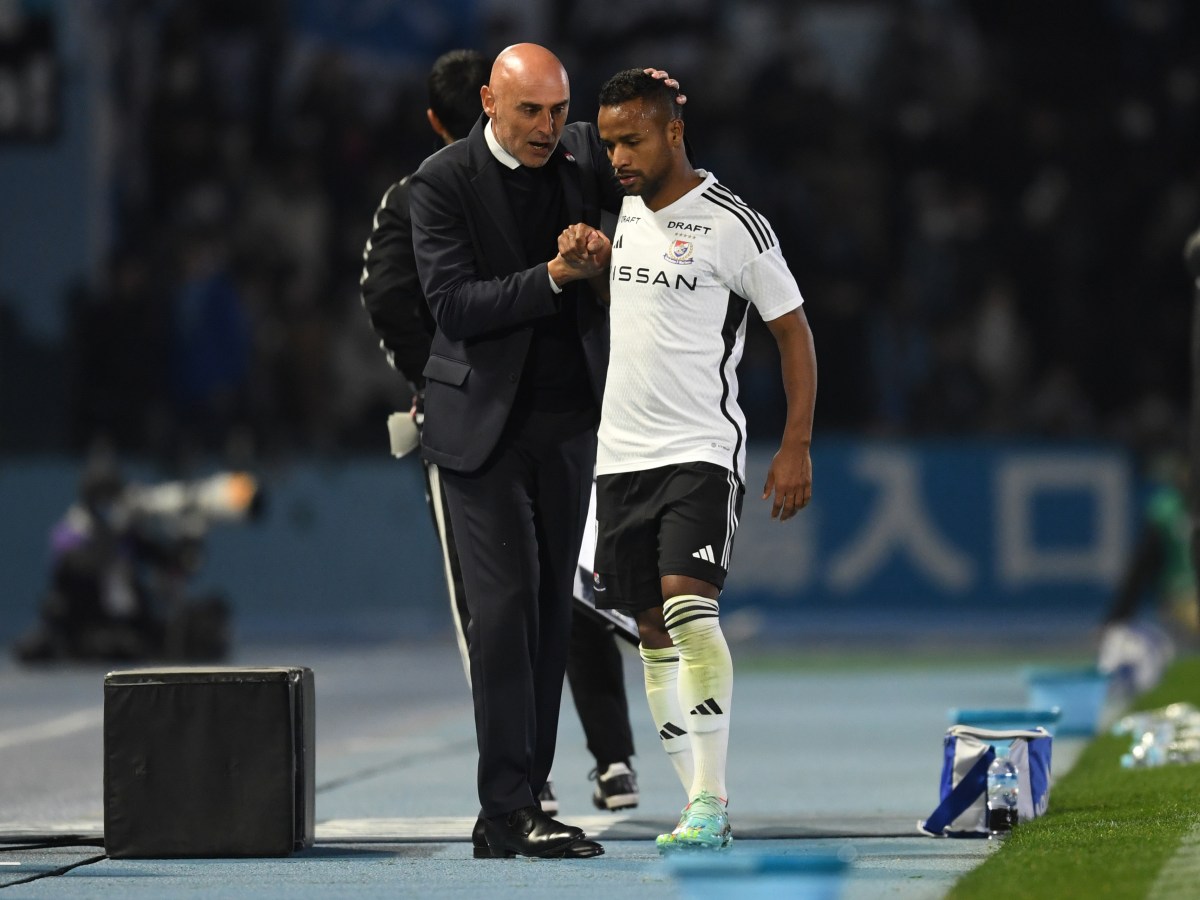
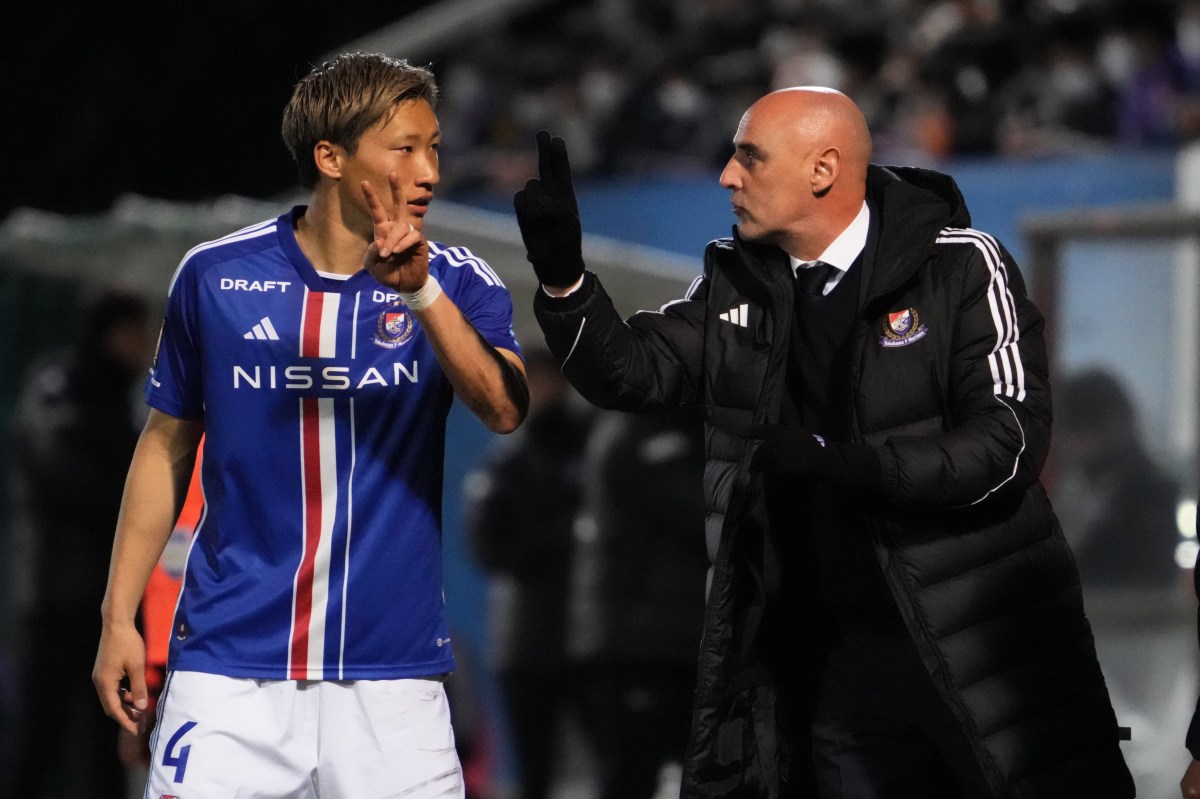
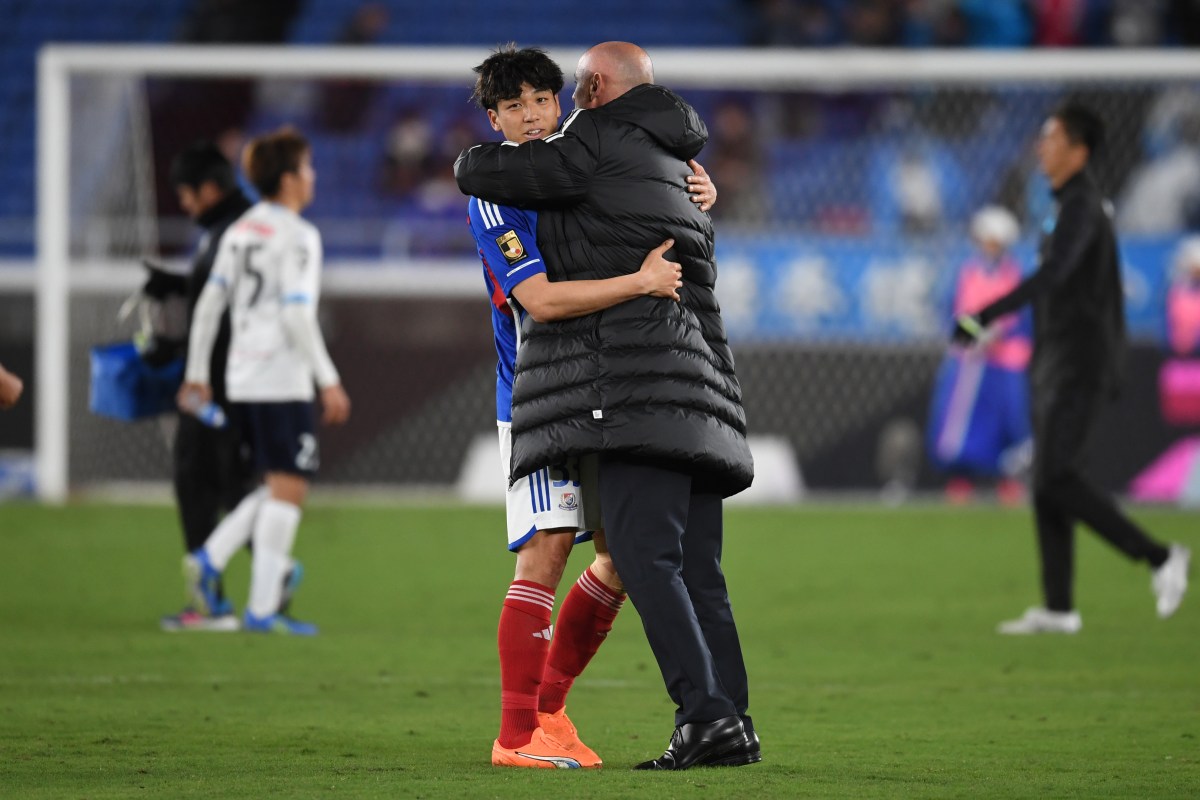
Unable to provide a financial windfall for players, unlike Japan’s powerhouses, the Marinos do offer an exciting brand of football but also an environment to flourish and a platform to Europe.
And already this season, they have the Japanese Super Cup in hand. Muscat became the first coach in Marinos history to win the annual match – pitting the J1 League champions against the Emperor’s Cup holders.
“The challenge is to have sustained success and for me, the challenge of reinvigorating ourselves plus adding to the group, that’s a great challenge. It’s very rewarding for the staff,” said Muscat, who won two Isuzu UTE A-League Championships and the Australia Cup during his time as Melbourne Victory head coach.
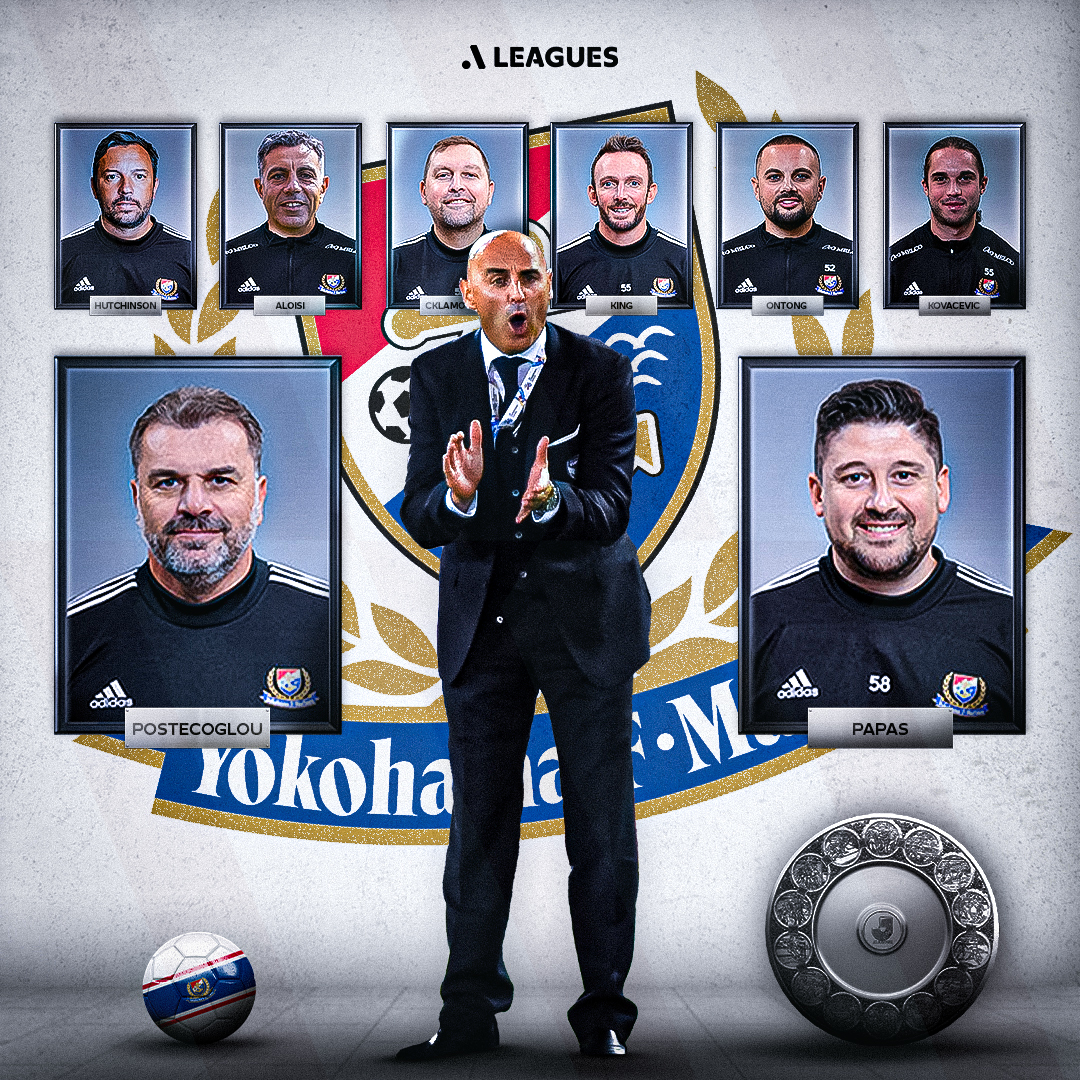
The former Socceroo, with fellow Australian and ex-A-Leagues defender Shaun Ontong by his side, continued: “It’s inevitable regardless of what stage you’re at in the journey, and with whatever team, there’s always going to be turnover. Sometimes there’d be cases where you don’t have a choice, sometimes it’s for different reasons.
“But we find ourselves in this situation and you have to embrace it. We challenged ourselves as a staff to recruit and bring players in with the characteristics that suit our style of play. Then we challenge ourselves as a staff to give them the tools to be able to contribute and be successful in how we want to play.
“Having said that, in certain things within our game, there’s natural evolution and we’ve tried to evolve to continue to stay ahead of the curve in our own mind.
“Even at the start of the season, I don’t know what it is, the J1 League goes to 20 teams (from 18) next year so only one team is getting relegated. The start of this campaign has been hot and really aggressive. I’ve noticed a much more pro-active and aggressive style of football from most teams.
“It’s been refreshing and challenging tactically. We’re adjusting things in our own little way to gain an advantage in certain phases of the game.”
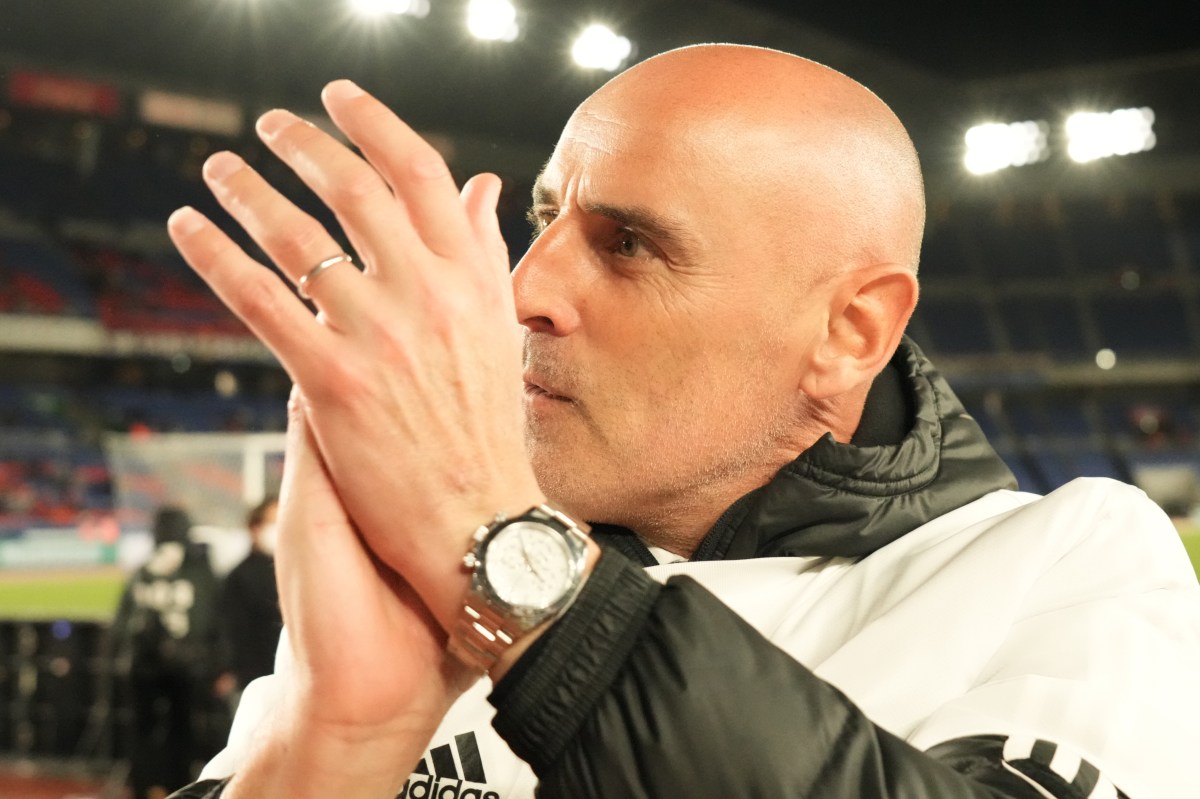
Muscat – whose Marinos have scored 13 goals in seven games, a tally bettered by just one team in 2023 – mentions evolution and staying ahead of the curve, but it’s interesting to pin down what that actually means.
Last year a high-octane team defied the odds, resources and previous squad overhaul to dethrone Kawasaki Frontale on the final day of the season thanks to their relentless pressing style.
But this game of reinvention and trying to think of new ways to innovate is what Muscat relishes – taking a thought and implementing that idea out on the field.
“Maybe one without the ball,” Muscat said when asked where he is trying to evolve. “We’ve been very aggressive in the way we press and what we’ve found this season particularly is that teams are inviting us to press and then bypassing our press.
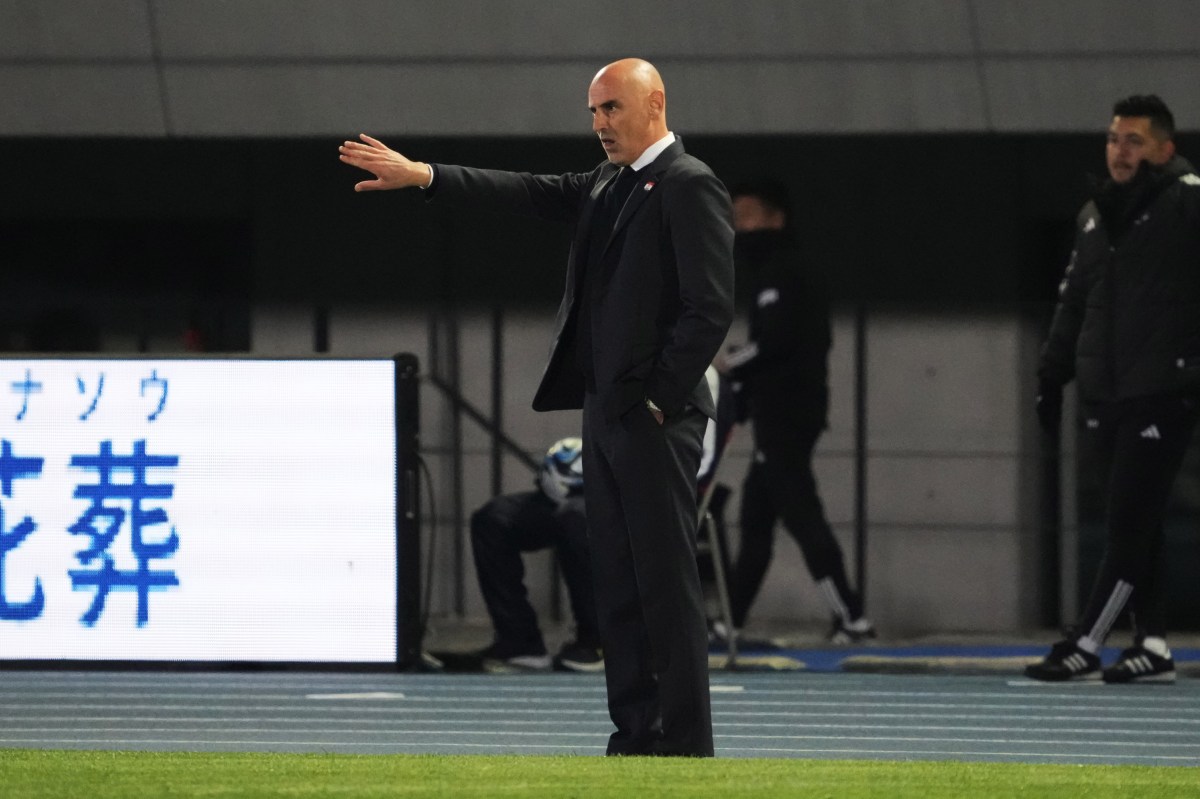
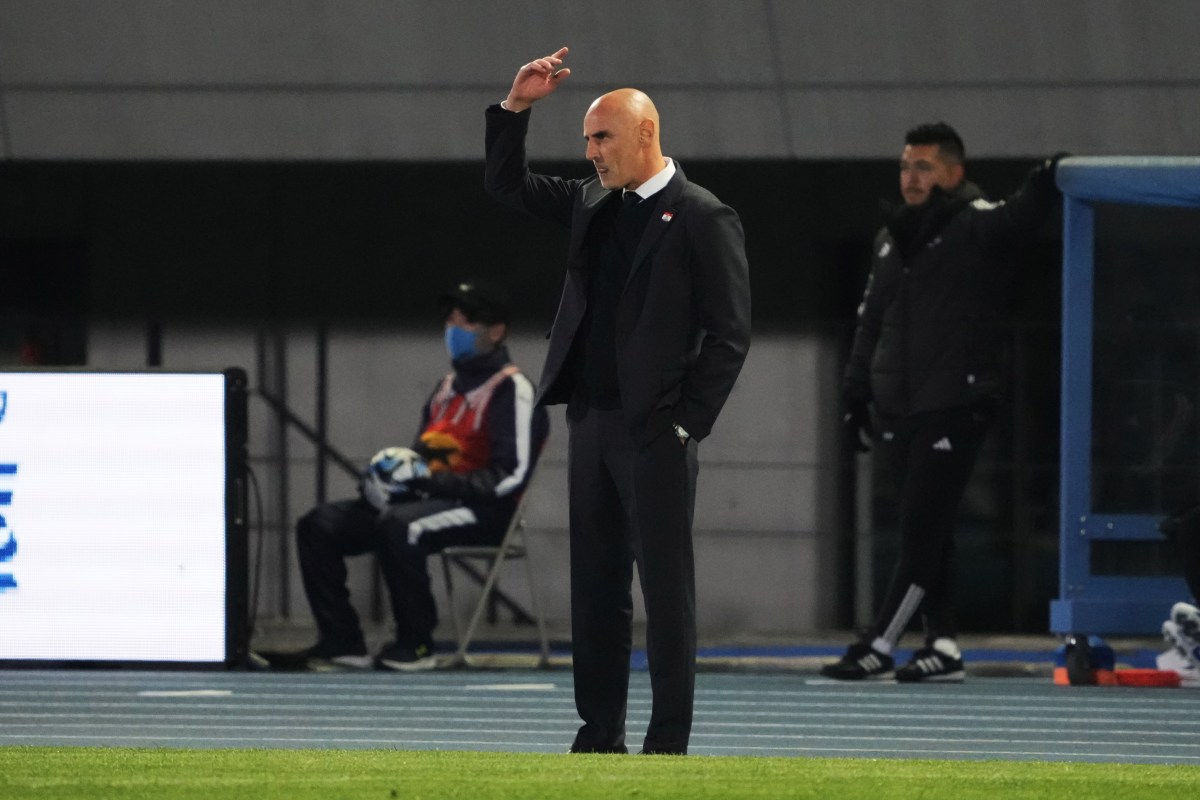
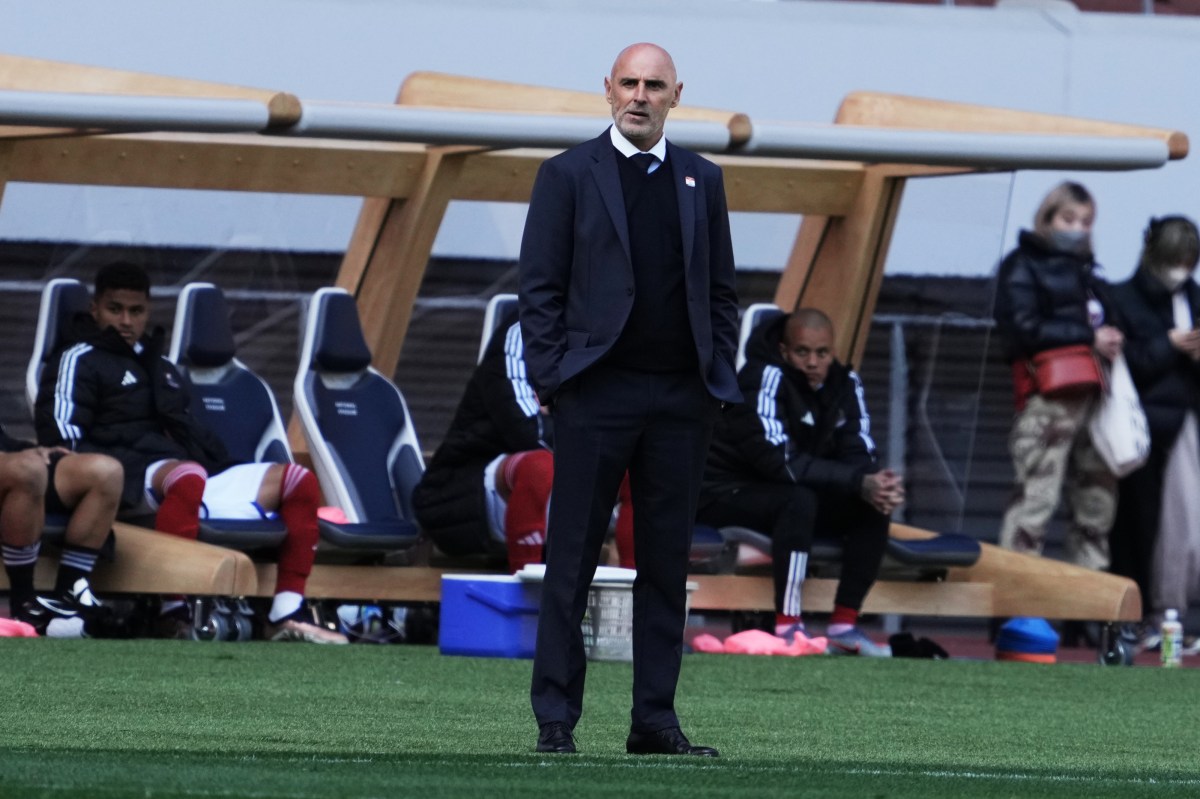
“So we don’t get the chance to press. The scale of balance is overturned from our perspective because we have committed a certain amount of players to press the opponent and in a certain area high up the pitch.
“All of a sudden you don’t get the chance to do that and you’re getting turned around, and maybe you’re imbalanced in terms of numbers.
“There’s been a bit of an adjustment. Not in terms of our approach, our approach is still to be aggressive and to threaten. If we’re unable to, because teams aren’t going to try to play through it, we will threaten to press but we’ve evolved a little bit. That’s been a challenge but a good one.
“In possession the other way, we’ve found teams have been more aggressive. I don’t know if there is less fear because (only) one team goes down… finding a way to play through that more efficiently. We’ve had to evolve in that area to tip the scales in our favour. At the same time, pose new questions or different questions to the opposition. It’s been thoroughly enjoyable.”





